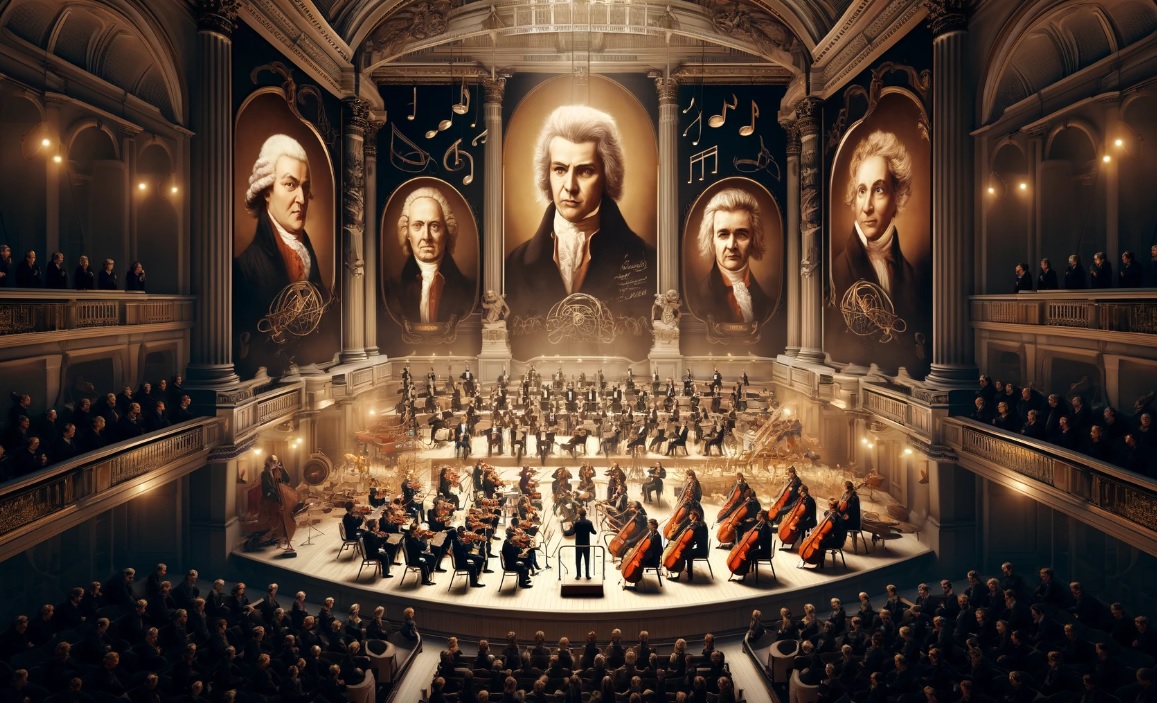
Classical music owes much of its development to the profound contributions of German composers. The rich musical heritage of Germany has produced some of the most influential and revered figures in the history of classical music. These composers not only shaped the music of their time but also left a lasting legacy that continues to inspire musicians and listeners worldwide. This article explores the key German composers who have had a significant impact on classical music.
Johann Sebastian Bach (1685-1750)
Johann Sebastian Bach is often regarded as one of the greatest composers of all time. His intricate compositions and mastery of counterpoint set a new standard for musical complexity and beauty. Bach’s work includes a vast array of genres, from the deeply spiritual “St. Matthew Passion” to the virtuosic “Brandenburg Concertos.” His music continues to be a cornerstone of classical repertoire, studied and performed by musicians around the world.
Key Contributions:
- Development of counterpoint and fugue
- Integration of sacred and secular music
- Influence on later composers such as Mozart and Beethoven
Ludwig van Beethoven (1770-1827)
Ludwig van Beethoven is another towering figure in classical music. His work bridged the Classical and Romantic eras, pushing the boundaries of musical form and expression. Beethoven’s symphonies, particularly the iconic Ninth Symphony, are celebrated for their emotional depth and structural innovation. His piano sonatas and string quartets are also essential to the classical canon.
Key Contributions:
- Expansion of symphonic form and orchestration
- Introduction of motifs and themes in symphonic music
- Influence on Romantic composers like Schubert and Brahms
Johannes Brahms (1833-1897)
Johannes Brahms is known for his rich, lyrical compositions that blend classical structure with Romantic expressiveness. His symphonies, concertos, and chamber works are notable for their intricate craftsmanship and emotional intensity. Brahms’ music reflects a deep respect for the classical traditions of Bach and Beethoven while also forging new paths in harmony and rhythm.
Key Contributions:
- Mastery of classical forms within a Romantic context
- Development of complex rhythmic structures
- Influence on later composers such as Dvorak and Mahler
Richard Wagner (1813-1883)
Richard Wagner revolutionized opera with his concept of the Gesamtkunstwerk, or “total work of art,” which sought to unify music, drama, and visual spectacle. Wagner’s operas, such as “The Ring Cycle” and “Tristan und Isolde,” are known for their complex harmonies, leitmotifs, and grandiose scale. His innovations had a profound impact on the development of Western music and influenced many composers, including Debussy and Strauss.
Key Contributions:
- Development of leitmotif technique
- Expansion of harmonic language and orchestration
- Influence on modern opera and film music
Felix Mendelssohn (1809-1847)
Felix Mendelssohn was a prolific composer, conductor, and pianist who played a crucial role in the revival of interest in the music of Johann Sebastian Bach. His compositions, such as the “Hebrides Overture” and the “Violin Concerto in E Minor,” are celebrated for their melodic beauty and formal clarity. Mendelssohn’s work helped to solidify the Romantic style while maintaining strong ties to classical traditions.
Key Contributions:
- Revival of Bach’s music
- Development of concert overture form
- Influence on Romantic-era composers
The influence of German composers on classical music is undeniable. Figures like Bach, Beethoven, Brahms, Wagner, and Mendelssohn have left an indelible mark on the musical landscape, shaping the course of Western music for centuries. Their innovations in form, harmony, and orchestration continue to resonate, making German contributions to classical music a cornerstone of the genre. Whether you are a musician, a student, or an avid listener, exploring the works of these composers will deepen your appreciation for the rich tapestry of classical music.
Related articles:
Johannes Brahms
Richard Wagner
Johann Sebastian Bach
